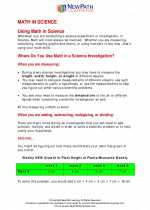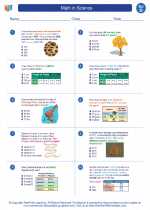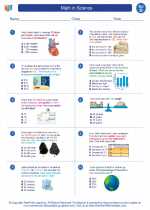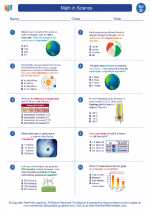Appreciation
Appreciation is the recognition and enjoyment of the good qualities of someone or something. It involves understanding the value, importance, or quality of a person, object, or event. In the context of science, appreciation can also refer to the recognition and understanding of the natural world, including the environment and living organisms.
What to Appreciate in Science
In the field of science, there are many things to appreciate and study. Some key areas include:
- Nature and the Environment: Understanding and appreciating the natural world, including ecosystems, biodiversity, and the impact of human activities on the environment.
- Living Organisms: Appreciating the diversity and complexity of living organisms, including plants, animals, and microorganisms, and understanding their role in the ecosystem.
- Scientific Discoveries: Recognizing and appreciating the work of scientists and the impact of scientific discoveries on our lives and society.
- Scientific Method: Understanding and appreciating the process of scientific inquiry, including making observations, asking questions, forming hypotheses, conducting experiments, and drawing conclusions.
Study Guide for Appreciation in Science
When studying and appreciating science, consider the following:
- Observation: Take time to observe and explore the natural world around you. Look for patterns, relationships, and interactions among living organisms and the environment.
- Curiosity: Develop a sense of curiosity and ask questions about the natural world. What makes a certain plant species unique? How do animals adapt to their environment?
- Connection: Understand the interconnectedness of living organisms and their environment. Appreciate the delicate balance of ecosystems and the impact of human activities.
- Gratitude: Show gratitude for the natural resources and the beauty of the environment. Recognize the importance of conservation and sustainable practices.
- Learning from Discoveries: Study and appreciate the work of scientists and the impact of their discoveries on society. Understand the process of scientific inquiry and the value of evidence-based knowledge.
By developing an appreciation for science, we can gain a deeper understanding of the natural world and cultivate a sense of responsibility towards preserving and protecting our environment and living organisms.
.◂Science Worksheets and Study Guides Fourth Grade. Math in Science
Study Guide Math in Science - 4th grade
Math in Science - 4th grade  Worksheet/Answer key
Worksheet/Answer key Math in Science - 4th grade
Math in Science - 4th grade  Worksheet/Answer key
Worksheet/Answer key Math in Science - 4th grade
Math in Science - 4th grade  Worksheet/Answer key
Worksheet/Answer key Math in Science - 4th grade
Math in Science - 4th grade 

 Worksheet/Answer key
Worksheet/Answer key
 Worksheet/Answer key
Worksheet/Answer key
 Worksheet/Answer key
Worksheet/Answer key

The resources above cover the following skills:
Science as Inquiry and Process (SA1, SA2, SA3)
The student develops an understanding of the processes of science by asking questions, predicting, observing, describing, measuring, classifying, making generalizations, inferring and communicating.